
461 Ocean Boulevard is the second studio album by Eric Clapton that marked his return to recording after recovering from a three-year addiction to heroin. The album was released in late July 1974 for RSO Records, shortly after the record company released the hit single "I Shot the Sheriff" in early July the same year. The album topped various international charts and sold more than two million copies.

No Reason to Cry is the fourth full-length studio album by Eric Clapton, released by RSO Records in 1976. The album was released in compact disc format on 25 October 1990.
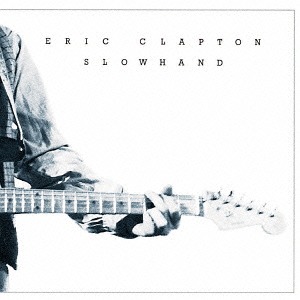
Slowhand is the fifth full-length studio album by Eric Clapton. Released on 25 November 1977 by RSO Records, and titled after Clapton's nickname, it is one of his most commercially and critically successful studio albums. Slowhand produced the two hit singles "Lay Down Sally" and "Wonderful Tonight", reached various international music charts and was honoured with numerous awards and recording certifications. In 2012, a deluxe edition was released to celebrate the album's 35th anniversary.

Just One Night is a 1980 double album by Eric Clapton, recorded live at the Budokan Theatre, Tokyo, Japan, December 1979 when Clapton was touring to support Backless, his latest record at that time. The sleeve contains a Japanese painting by Ken Konno. The album reached No. 2 in the U.S. and No. 3 in the UK, and was certified gold by RIAA.
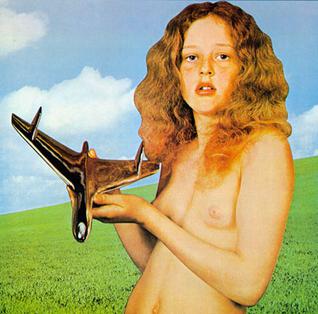
Blind Faith is the self-titled and only album by the English supergroup Blind Faith, originally released in 1969 on Polydor Records in the United Kingdom and Europe and on Atlantic Records in the United States. It topped the album charts in the UK, Canada and US, and was listed at No. 40 on the US Soul Albums chart. It has been certified platinum by the RIAA.

Pilgrim is the thirteenth solo studio album by the British rock musician Eric Clapton, released on 10 March 1998 for Reprise Records. The album features all-new studio-recorded material, the first to do so since Clapton's 1989 hit album Journeyman and was nominated for several music awards. Although most of the critics responded negatively to the 1998 studio effort, it was one of Clapton's most commercially successful albums, reaching the Top 10 in twenty-two countries.
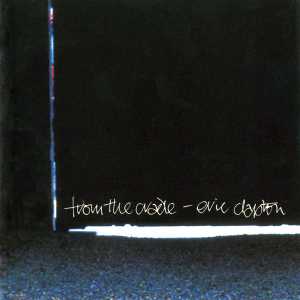
From the Cradle is the twelfth solo studio album by Eric Clapton released on 13 September 1994 by Warner Bros. Records. A blues cover album and Clapton's follow-up to his successful 1992 live album, Unplugged, it is his only UK number-one album to date.

Layla and Other Assorted Love Songs is the sole studio album by the English–American blues rock band Derek and the Dominos, released in November 1970 as a double album. It is best known for its title track, "Layla", and is often regarded as Eric Clapton's greatest musical achievement. The other band members were Bobby Whitlock on keyboards and vocals, Jim Gordon on drums, Carl Radle on bass. Duane Allman played lead and slide guitar on 11 of the 14 songs.
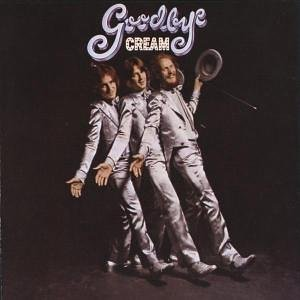
Goodbye is the fourth and final studio album by Cream, with three tracks recorded live, and three recorded in the studio. It was released in Europe by Polydor Records and by Atco Records in the United States, debuting in Billboard on 15 February 1969. It reached number one in the United Kingdom and number two in the US. A single, "Badge", was subsequently released from the album a month later. The album was released after Cream disbanded in November 1968.

Unplugged is a 1992 album by Eric Clapton, recorded at Bray Studios, England in front of an audience for the MTV Unplugged television series. It includes a version of the successful 1991 single "Tears in Heaven" and an acoustic version of "Layla". It won six Grammy awards at the 35th Annual Grammy Awards in 1993 and became the bestselling live album of all time, and Clapton's bestselling album, selling 26 million copies worldwide.

The History of Eric Clapton is a compilation double LP, released in 1972 by Polydor Records in the United Kingdom, and Atco Records in the United States. It features Eric Clapton performing in various bands between 1964 and 1970, including The Yardbirds, Cream, Blind Faith and Derek and the Dominos.
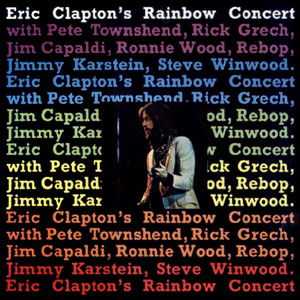
Eric Clapton's Rainbow Concert is a live album by Eric Clapton, recorded at the Rainbow Theatre in London on 13 January 1973 and released in September that year. The concerts, two on the same evening, were organised by Pete Townshend of the Who and marked a comeback by Clapton after two years of inactivity, broken only by his performance at the Concert for Bangladesh in August 1971. Along with Townshend, the musicians supporting Clapton include Steve Winwood, Ronnie Wood and Jim Capaldi. In the year following the two shows at the Rainbow, Clapton recovered from his heroin addiction and recorded 461 Ocean Boulevard (1974).

Eric Clapton is the debut full studio album by British rock musician Eric Clapton, released in August 1970 under Atco and Polydor Records.

Money and Cigarettes is the eighth solo studio album by Eric Clapton recorded after his first rehabilitation from alcoholism. Produced by Clapton and Tom Dowd with, apart from Albert Lee, a new backing band of veteran session musicians including Donald "Duck" Dunn, Roger Hawkins, and Ry Cooder. The album was moderately successful commercially, reaching Top 20 chart positions in several countries. Critical reception was lukewarm.
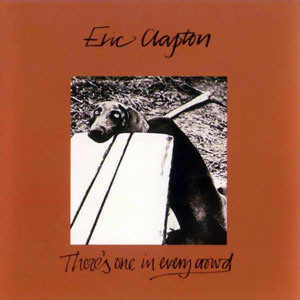
There's One in Every Crowd is the third full-length studio album by Eric Clapton. Recorded shortly after 461 Ocean Boulevard, the album features a style very similar to its predecessor, but did not enjoy similar commercial success.
"Call Me the Breeze" is a rock song by J. J. Cale. It first appeared on his 1972 debut album, Naturally, as the opening track. The song consists of a 12-bar blues guitar shuffle and features the early use of a drum machine.

"Let It Rain" is a song and single written and released by the British rock musician Eric Clapton and Bonnie Bramlett; it appears on his 1970 debut studio album Eric Clapton. It is the third and final single that was released from the album.

"Every Little Thing" is a reggae pop song written by Doyle Bramhall II, Nikka Costa and Justin Stanley. It was recorded by the British rock musician Eric Clapton for his 2013 studio album Old Sock. As single release featuring the non-album track "No Sympathy" and remixes of the title by Damian and Stephen Marley.

"Easy Now" is a pop rock song, written by the British rock musician Eric Clapton. He wrote and recorded the track for his 1970 studio album Eric Clapton for Polydor Records. The song was also released as the B-side to the singles "After Midnight" in 1970 and "Let It Rain" in 1972. The composition is also featured on the 1972 compilation album Eric Clapton at His Best. The recording was produced by Delaney Bramlett.
"Bottle of Red Wine" is an uptempo blues rock song, written and recorded by the British rock musician Eric Clapton for his eponymous studio album Eric Clapton in 1970 under Polydor Records. The recording was produced by Delaney Bramlett and is of a three-minute and six second duration. Polydor Records released the song as the B-side to the 1970 single release "Blues Power". The song is written in the key of C major, played with the blues scale. Music critic Robert Christgau notes, that the tune does not deserve a "classic status". The title is also included on the 1972 compilation album Eric Clapton at His Best.

















